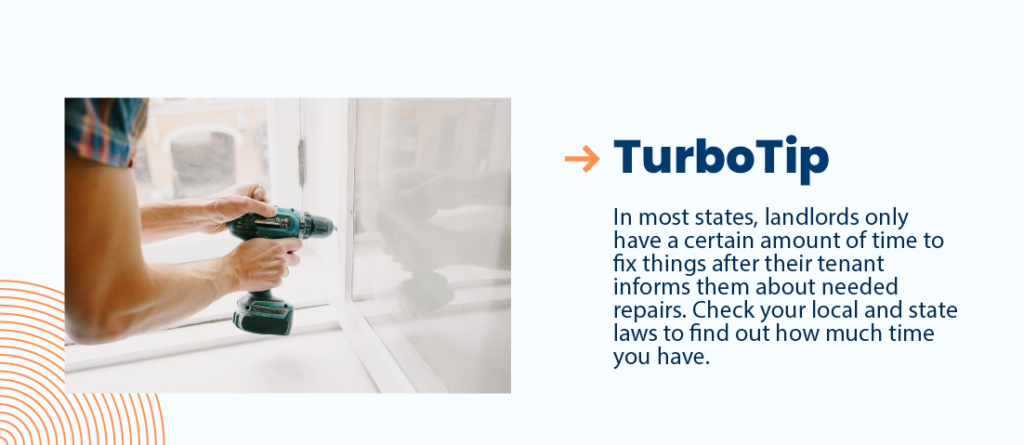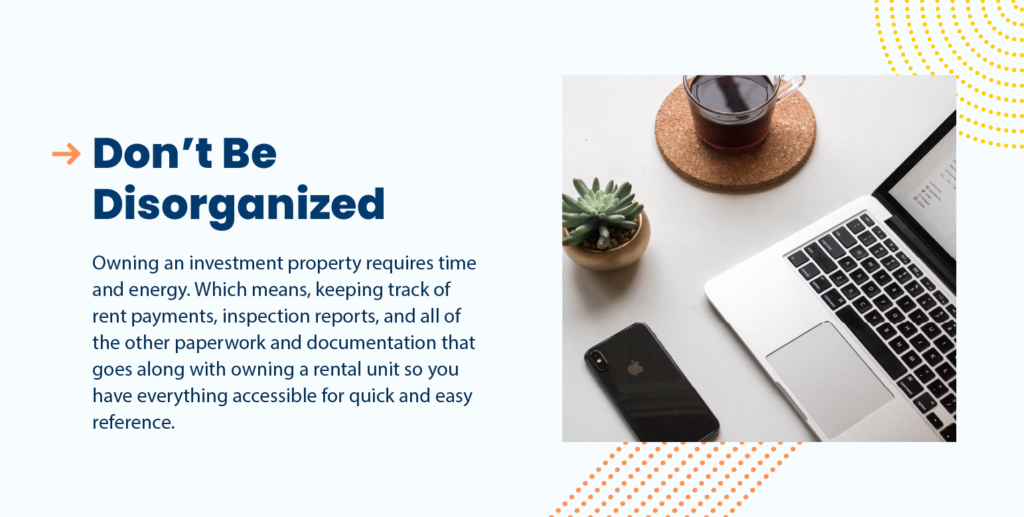Investing in rental properties can be one of the most lucrative ways to make money. Whether you are a property investing veteran or you are merely toying with the idea of purchasing your first rental property, being a landlord involves constantly learning and growing. As Rob Toledo states in this “How to Learn from Other People” article, the internet not only makes it easy to learn but makes it easy to learn from other people’s experiences and mistakes. With an estimated 10 to 11 million landlords worldwide, there have been plenty of mistakes made for you to learn from. Making a list of every mistake would take ages, so we decided to focus on the top ten mistakes to avoid.
1. Setting Goals
A common mistake landlords make is not setting specific, attainable goals. Those with written goals are more likely to achieve success than those without. Before starting the hunt for your first investment property, it’s important to sit down and create a list with all of your goals for your future investment property.
- Who would your ideal tenant be? College students, a family, or single renters?
- What do you need to charge for rent to cover your costs and work towards a positive return on your investment?
- Do you want to purchase a fixer-upper or a property that is ready to rent immediately?
- Will it be a short-term or long-term rental?
This is just the beginning of questions you should ask yourself before you jump into the world of landlording. There are many strategies to consider when purchasing an investment property, but the best way to develop your list of goals is to determine what is important to you and what long-term goals are for your rental property. After creating this list, you can start going through each goal to figure out what steps you need to take to reach them.
Protip: Write your goals down and check them annually to make sure you are on track.
2. Purchasing the Wrong Property
Purchasing an investment property is one of the first and most important steps in becoming a landlord.
The property you purchase should directly align with your investment goals. If you are hoping to rent to families, finding a property in a good school district with a safe neighborhood with multiple bedrooms should be important aspects when beginning your search. Knowing what the average rent is in neighborhoods you are looking at will help you understand how that will compare to your mortgage payment. Location matters, but so does the property type.
Protip: Whether you are looking for a home or condo, make sure you account for any HOA fees and obligations that may accompany the property. Determine whether the upkeep and fees are something potential tenants can manage. For example, if your HOA has a rule where you can’t put the trash can out until after midnight (we aren’t kidding), will your tenant be able to handle this strict rule, or will you be dealing with a pile-up of fines? Be thorough in your research by understanding market trends and all the costs associated with owning a property.
3. Neglecting Marketing
Marketing is at the heart of a rental property. Advertising is how you will find tenants, so you need to put time and effort into it. Take high-quality photos of your property to entice more renters. Shoot in every room at different angles and include informative descriptions, so potential tenants aren’t left with too many questions. In the modern digital age, video tours will also help you reach more potential tenants. Using property management software for marketing will save you additional time and effort by disbursing your property listing to numerous platforms like Realtor.com, Rent.com, Apartment List, and many others.
4. Skipping Tenant Screening
We get it, you may talk to a potential renter, and they could seem perfect, so why waste the time to run a screening report, right? Wrong. But don’t worry, you aren’t alone. This is a common mistake landlords make. Screening reports are safety lines that ensure you choose an ideal tenant for your property, not just someone that seems like the perfect tenant.
Once you set screening criteria, ask for interested tenants to fill out an online rental application and run a screening report so you can check a potential tenant’s credit score, criminal history, employers, and evictions. Screening tenants is one of the easiest and simplest ways to protect your property investment.
5. Drafting an Incomplete Lease Agreement
Aimed at protecting both parties, the lease agreement is a legally binding document between you and your tenant. If you decide to use a very basic lease or no lease at all, you could be left high and dry with expenses or a renter taking advantage of the situation.
Your lease should include the names of all parties involved, including the landlord, tenant(s), and co-signer(s). It should outline the beginning and end of the lease, along with fees such as the security deposit, rent, included utilities, and late fees. You should also have pet and smoking clauses, how the tenant should handle maintenance issues, and how to set up utility payments.
If something happens where you have to go to court, verbal communication will not hold any weight. Be sure you have every detail included in the lease agreement, so you don’t run into any issues down the road. With TurboTenant, you can build your own state-specific lease agreement to get you started.
6. Being Unprepared for Maintenance
When we say maintenance, there are a few different definitions we are referring to. The first one is maintenance repairs; hiring a plumber to fix a clogged drain, finding a landscaper to keep the grass cut, or taking time to replace light bulbs that have gone out. Be sure to charge enough for rent, so that when repairs do come up, you have a reserve to cover the cost. In most states, landlords only have a certain amount of time to fix things after their tenant informs them about needed repairs, so make sure you know how much time you have in your state.
The other form of maintenance we are referring to is maintaining the property when it is unoccupied. In case you have a prolonged vacancy, you need to be prepared to make the mortgage and utility payments on your own.
7. Limited Communication
Communication is key in any relationship, including landlord-tenant relationships. You don’t want to go overboard when communicating with your tenants, but you should maintain an open dialogue. This will help you keep tabs on the property’s condition while also ensuring your tenants know they can reach out to you with any questions or issues. When your tenants feel comfortable approaching you, they will let you know about maintenance and other issues, so next time there is a leaky faucet, they’ll call right away rather than letting the damage worsen. TurboTenant has a comprehensive messaging tool to keep all of your tenant communications in one spot so you don’t have to worry about sifting through dozens of emails or text messages to find the thread you’re looking for.
8. Using Old School Methods for Collecting Rent
It may not seem like it, but one of the biggest mistakes landlords make is collecting rent in more traditional ways, like cash or checks. Most apartment complexes use digital platforms, like property management software, to collect rent, making it easier for renters and landlords alike. For independent landlords to stay relevant and compete in the rental space, they should utilize similar methods. Collecting rent online is straightforward. Tenants are able to pay quickly from their mobile phone or computer. They can pull funds directly from their checking account or use a credit card to give them more flexibility to pay rent without impacting their on-time payments.
9. Misunderstanding Landlord-Tenant Law
Not understanding your local and federal laws can have a devastating effect on your rental property. Asking the wrong questions in a tenant interview can lead to solid ground for tenants to say they were denied housing based on discrimination. Not knowing when you need to return a tenant’s security deposit after they move out can result in paying back double. Each state has different laws and regulations landlords must follow, and it is worth your time and money to be knowledgeable about your specific state.
10. Being Disorganized
To round off our list of landlord mistakes, we have to touch on organization. Owning an investment property requires time and energy. It is a legitimate source of income and should be treated as such, which means keeping track of rent payments, inspection reports, and all the other paperwork and documentation that goes along with owning a rental unit.
We know the stack of papers on the corner of your desk seems like an acceptable way to keep organized, but take our word for it; you don’t want to be cleaning up the aftermath of Fluffy, the cat, deciding to knock it all onto the floor. Utilizing property management software that keeps everything in one spot on your user dashboard can alleviate a lot of stress that comes with organization and tracking all things rental property.
Knowing what not to do as a landlord is just as important as knowing what to do. Taking the time to study laws or draft a comprehensive lease agreement is worth it to have the financial freedom and flexibility that property investment can bring. Hopefully, this guide will help you avoid making some of these common but potentially detrimental mistakes so you can focus on your achievements and be the best landlord you can be.










